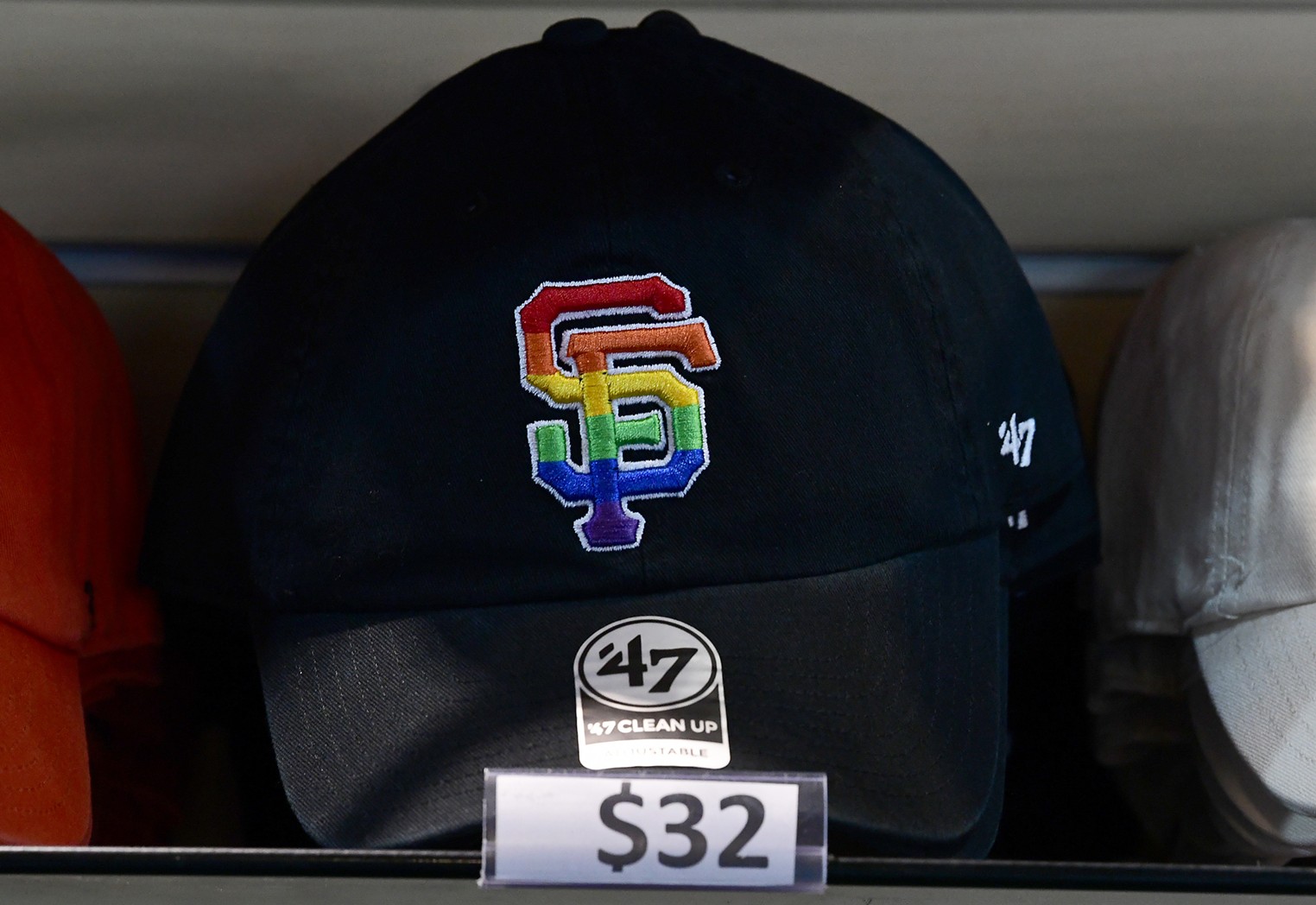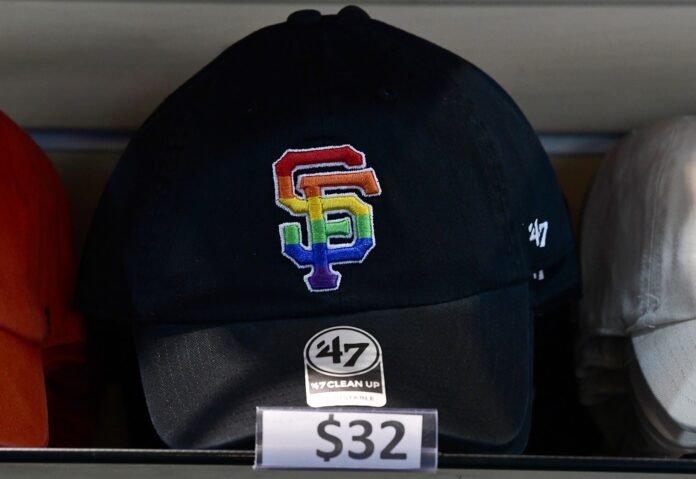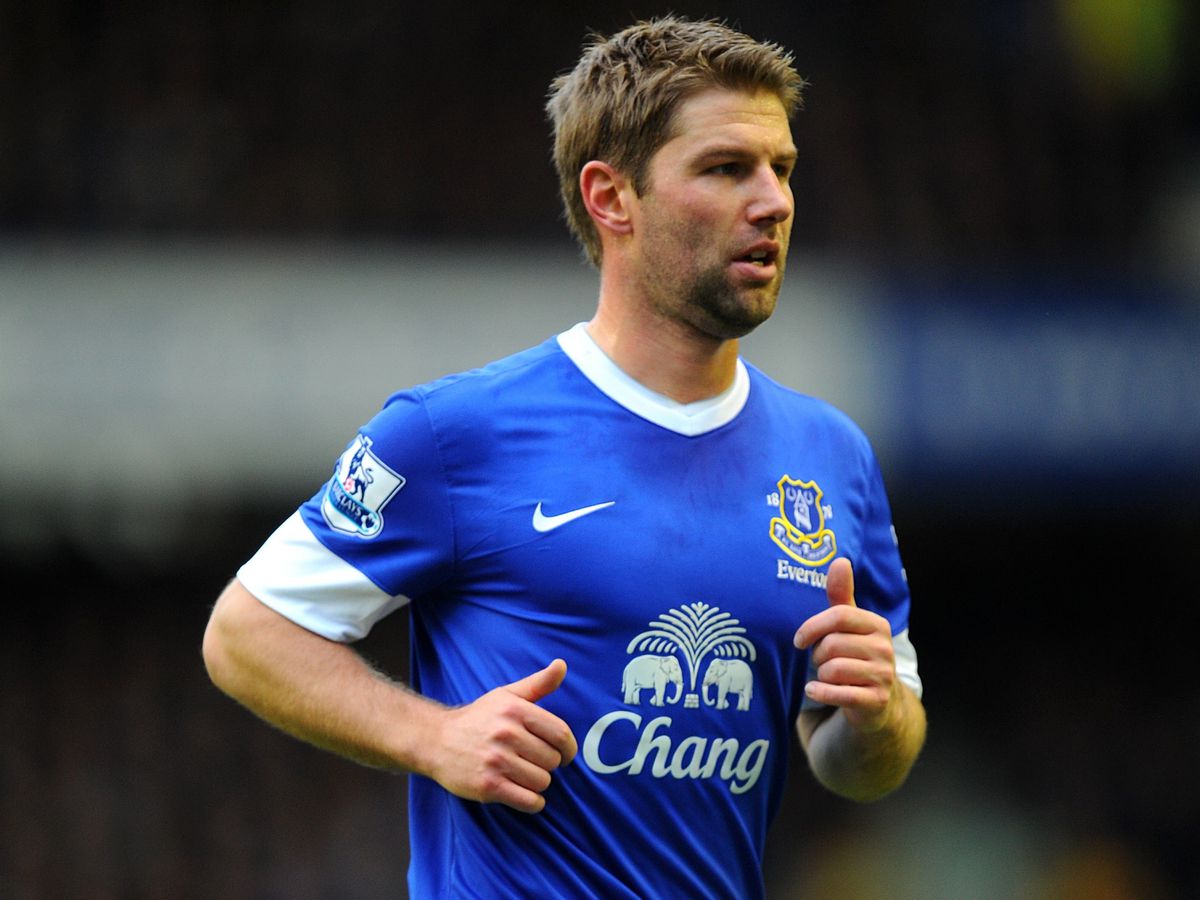
After 50 seasons of baseball in Arlington, the Texas Rangers’ scoreboard is downright embarrassing. Zero prizes. No pride.
As the players close out yet another lousy, losing year on the field, the front office will stubbornly retain its reputation as the last homophobic holdout – the only team in Major League Baseball to have never hosted a “Pride Night” welcoming its LGBTQIA+ fans.
The Rangers are neither winners of a baseball title, nor champions for social diversity. Instead, they smugly remain one of the most intolerant, least inclusive franchises in all of professional sports.
“It hurts, especially when we see teams around the country – even here in Dallas – being more progressive and hosting Pride Nights,” says Lee Daugherty, owner of Alexandre’s bar and restaurant in Oak Lawn. “For a community that feels left out anyway, it digs at us a little more. Lots of my friends and customers strongly support the Rangers. It’d be nice to finally see a little love back.”
The Rangers held an unofficial promotion at a game in 2003, inviting community groups such as gay/lesbian volleyball, softball and rugby leagues and the Texas Gay Rodeo Association to attend. The event prompted anti-gay protests outside the gates of The Ballpark in Arlington.
That fan pushback, combined with the cultural constriction of the Bible Belt and staunchly conservative ownership group led by Ray Davis, is motivating the Rangers — externally, at least — to turn their backs on fans who are lesbian, gay, bisexual, transgender, queer, intersex or asexual. According to a February Gallup poll estimating that 7.1 percent of the U.S. population is LGBTQIA+, that means roughly 500,000 people in DFW.
Furthermore, Oak Lawn is one of America’s largest and most iconic gayborhoods. Last June, Dallas’ Pride Parade drew sponsorships from corporate heavyweights McDonald’s, Amazon, Toyota, Geico, American Airlines and Capital One. Other local professional teams — the NBA’s Dallas Mavericks, the NHL’s Dallas Stars, soccer’s FC Dallas and the WNBA’s Dallas Wings — all held Pride Nights in 2022. The Dallas Cowboys, per NFL guidelines, don’t host a specific Pride Game, but in 2014 the team signed openly gay player Michael Sam.
Meanwhile, the Rangers wouldn’t even alter their avatar on Spirit Day, set aside in October to take a stand against the bullying of LGBTQIA+ youths. Last year all 30 MLB teams blasted social-media acknowledgement of Spirit Day. The Rangers were the only one to remove LGBTQIA+ from its message.
Included in the team’s diluted missive was its ironically machismo official hashtag: #StraightUpTX.
“It’s puzzling,” says Rafael McDonnell, Dallas’ Resource Group senior advocacy policy and communications manager, who initiated a continuing dialogue with the team in 2018. “The Rangers are literally throwing money away. They’re failing Marketing 101.”
Baseball’s Pride tradition started with the Chicago Cubs in 2001. Twenty years later there were only two abstaining teams — both in Texas — until the Houston Astros hosted their “Baseball is for Everyone” Pride Night in June 2021 against, sure enough, their upstate rival.
Behind the scenes, there has been progress … small acts of kindness tiptoeing toward a bridge between club and community.
Last season members of the front office volunteered to help Resource Center with preparations for a Halloween party. Team employees underwent training by MLB Vice President Billy Bean, baseball’s second gay player to come out. Texas has provided Resource Group with fundraising items, such as signed memorabilia from catcher Pudge Rodriguez’s Hall-of-Fame induction. This summer the Rangers were a platinum sponsor of the Gay Softball World Series, which took place in Dallas and Waxahachie. Club officials participated in the opening ceremonies, with former star Michael Young delivering welcoming remarks. About 1,000 players, coaches and family associated with the tournament attended the Aug. 30 Rangers game against the Astros at Globe Life Field.
“It was nice to see,” says Daugherty, whose “Green Sox” was the only team from Dallas to win a trophy in the tournament. “Just need to see more of it. On a bigger scale.”
Instead, the Rangers hosted 34 community and theme nights at Globe Life Field this season. They included Whataburger, Game of Thrones, Korean heritage, Stranger Things, White Settlement (the town, not the practice), teachers, military appreciation and two for first responders. None for LGBTQIA+. “Hispanic Heritage” got the entire month of September. There was indeed a “Pride” Night, but the one in April was merely giving away a bobblehead of Country Music Hall-of-Famer and long-time Rangers fan Charley Pride.
Many in the LGBTQIA+ community remain insulted at being ignored while the Rangers unearth a staggering number of fringe groups and causes to celebrate.
Last month, the team’s Rangers Foundation presented five $100,000 checks to local charity groups supporting athletic training for those with physical limitations, school district education, cultural arts, high-risk youth and victims of sex trafficking. Again, the LGBTQIA+ community was shut out.
And a couple of times during the season the Rangers transformed GLF’s retractable roof into a revival tent, brandishing their partnership with a Jesus-juiced website by displaying “He Gets Us” on the back of the pitcher’s mound. Make no mistake, batting clean-up in Texas’ dream batting order are heterosexual Christians.
Says McDonnell, “We’ve made some progress. But as far as their social media or actually hosting a game, they’re just not forward-thinking. It’s like we’re stranded on third base and can’t make it home.”
It’s not as if the LGBTQIA+ community is demanding a tsunami of wokeness. Maybe a blingy tweak of the team logo on Instagram once a year, or the momentary catering to those habitually shunned in only one of 81 home games per season.
For just one night, rainbows at GLF over the traditional fireworks.
Besides, it’s not like there isn’t internal desire to have the team open its doors … and its mind.
“You think we want to be the only team in baseball not (having a Pride Night)?” said a longtime Rangers employee who wishes to remain anonymous. “It’s embarrassing. We do so many good things, but on this we’re in the Stone Ages. Unfortunately, it’s way beyond our control.”
Asked for a comment on their stance regarding LGBTQIA+, the Rangers provided a cut-and-paste statement with no specific mention of the gay community in general or Pride Night in specific.
“Our commitment is to make everyone feel welcome and included in Rangers baseball,” said the statement from the team’s executive vice president of communications, John Blake. “That means in our ballpark, at every game, and in all we do — for both our fans and our employees. We deliver on that promise across our many programs to have a positive impact across our entire community.”
In 2020, Rangers minority owner, COO and President of Business Operations Neil Leibman told The Dallas Morning News, “With respect to Pride Night, we reached out to the Resource Center and said what can we do internally. We immediately adopted some changes they suggested to be more inclusive in hiring practices. I think that’s more meaningful than just saying ‘OK, we had a Pride Night.’”
There are Rangers fans, of course, who applaud the team’s stance.
When a Sports Illustrated article broached the topic earlier this season, responses on social media included “we’ll be offended” and “we don’t want sexuality shoved in our face at a sporting event.”
Pride Nights typically include a check presentation to a group, an LGBTQIA+ national anthem singer, up-tempo music between innings and lots of rainbow-colored fashion statements. Some, however, seem to fear a Pride Night in Arlington would devolve into players in assless chaps, porn shoots in the bullpen, managers draped in feather boas and a sexual demonstration of the roles of “pitchers” and “catchers” at every base.
Wrote one SI commenter, “What does someone’s sexual preference have to do with baseball?” The natural retort would be to ask the same of “University of Arkansas Night” or “Star Wars Night.” Another commenter went a step further, responding “Pride night? Dear Lord. Does that mean they will do ‘Hetero night’? I want and need to feel included as well.”
Said McDonnell of that clichéd whataboutism, “There are 80 home games a year for straight people. Is that not enough? We can’t have one?”
Pressure from fans, employees and social-justice warriors be damned, McDonnell believes an individual or small group at the top of the team’s food chain is tying the club’s hands.
“I’ve talked to too many people over there to know this isn’t the prevailing attitude,” he said. “This decision to not have a Pride Night is being made by somebody with a very large influence. That’s why the Rangers are splitting the baby. It’s why they can’t completely engage.”
Ray Davis, for what it’s worth, has strong ties to Baylor University and consistently declines media interviews while living in relatively anonymity on a ranch in Grayson County.
The majority owner shocked Rangers fans on Aug. 17 when he oversaw the firing of manager Chris Woodward and long-time general manager Jon Daniels before bluntly pronouncing at the press conference: “We’re not good. And we haven’t been good for six years.”
While his team’s LGBTQIA+ stance is controversial, its on-field performance is simply catastrophic.
Despite doubling their payroll this season and shelling out almost a half-billion dollars in lengthy contracts to infielders Marcus Semien and Corey Seager, the Rangers are again headed for 90+ losses and a fifth-place finish in the American League West as of the last week of September. Since last making the playoffs in 2016, they are 100 games under .500 and have nosedived to a cumulative 172½ out of first place in the division.
In the last 3½ seasons the team has enjoyed a winning record for a total of five days.
This was such a drab season that in one game Semien forgot it was his turn at-bat, and none of his teammates were paying close enough attention to remind him. While other teams were posting magic numbers for the postseason and/or highlights of Fall Classic memories, the Rangers tweeted in September — complete with multiple exclamation points!!! — the release of their 2023 spring training schedule.
Attendance, accordingly, has plummeted. From a franchise-record 42,720 per game and 3.4 million fans overall in 2012, to this year struggling to draw more than 24,000 a night and reaching only 2 million.
Fans have to squint, but there is hope on the horizon.
“There are 80 home games a year for straight people. Is that not enough? We can’t have one?” – Rafael McDonnell, Dallas’ Resource Group
tweet this
The Astros endured similar rebuilding pain before winning the World Series in 2017, losing 106+ games for three consecutive seasons 2011–13 while stocking their cupboard with young talent. In 2022 the Rangers turned two triple-plays, and top prospect Josh Jung homered in his first big league at-bat. First baseman Nate Lowe, catcher Jonah Heim, Jung and the duo of Semien and Seager look like keepers.
But the Rangers need pitching. They have never hosted a Pride Night, just like they have never had a pitcher win the Cy Young Award (the only AL team not to). This season they surrendered the 10th-most runs in baseball, and their bloated ERA of well over four runs per game ranked 22nd out of 30.
All-Star Martin Perez proved he can be the ace of a staff, and minor-league prospects Jack Leiter, Owen White, Brock Porter, Kumar Rocker and Cole Winn all have immense potential. The Double-A affiliate Frisco RoughRiders won the Texas League. Winn set a single-season strikeout record for the Triple-A Round Rock Express.
By next season the Rangers will have a new manager in a league with new rules.
Baseball in 2023 is changing the game to speed up the pace and attract a younger audience: a pitch clock, bigger bases and no defensive shifts. All moves are aimed at promoting more scoring.
But the Rangers will likely stick with the same old policy against Pride — not without consequences.
Though GLF opened in 2020 and MLB loves to showcase its latest and greatest venues, the Rangers haven’t hosted an All-Star Game since 1995. Next year’s game will be in Seattle and the 2026 Summer classic — celebrating the 250th anniversary of the signing of the Declaration of Independence — is headed for Philadelphia. The 2024 and 2025 games are still unsettled, but the Rangers’ 50th anniversary this season seemed a logical match. (GLF did host the World Series, sans fans, at the end of the COVID-truncated 2020 season.)
Keen to keep an eye on what it perceives to be social injustices, MLB moved last year’s All-Star Game from Atlanta to Denver after a controversial voter suppression act was passed into law in Georgia.
As for LGBTQIA+ Rangers fans who are often bullied, unaccepted and told they are inferior or undesirable, their love for their team will continue unrequited. According to the Trevor Project, over 700,000 LGBTQIA+ youths between the ages of 13–24 attempt suicides each year.
“It’s a small gesture,” McDonnell said of Pride Night, “that could go a long way.”
A baseball “lifer” who this season completed his tour of all 30 MLB parks, McDonnell was asked to grade the inclusivity of DFW’s pro teams. His scorecard: Mavericks A+, Stars A- and Cowboys B-.
“I’m not saying (Cowboys owner) Jerry Jones is going to be leading the gay parade, but they do much more than people realize,” he said. “The Stars … when their first Pride Night was canceled because of an ice storm, they put on another one. The Mavs are the gold standard. They do everything right, and Mark Cuban is loud and proud.”
And then there are the Rangers, receiving a D-.
“We appreciate what they do, and they’re not totally failing,” McDonnell explained. “They’ve just reached the line of what they’re willing to do and they’re not going to cross it. But our other teams have done it. Every team in baseball has done it. You can’t tell me there’s that big of a difference between the typical Mavericks fan and the typical Rangers fan. If Globe Life Field hosted a Pride Night in 2023, I can assure you it wouldn’t disappear into a sink hole and be replaced by Sodom and Gomorrah.”
In the confounding case of the Rangers, the fall comes before the Pride.








